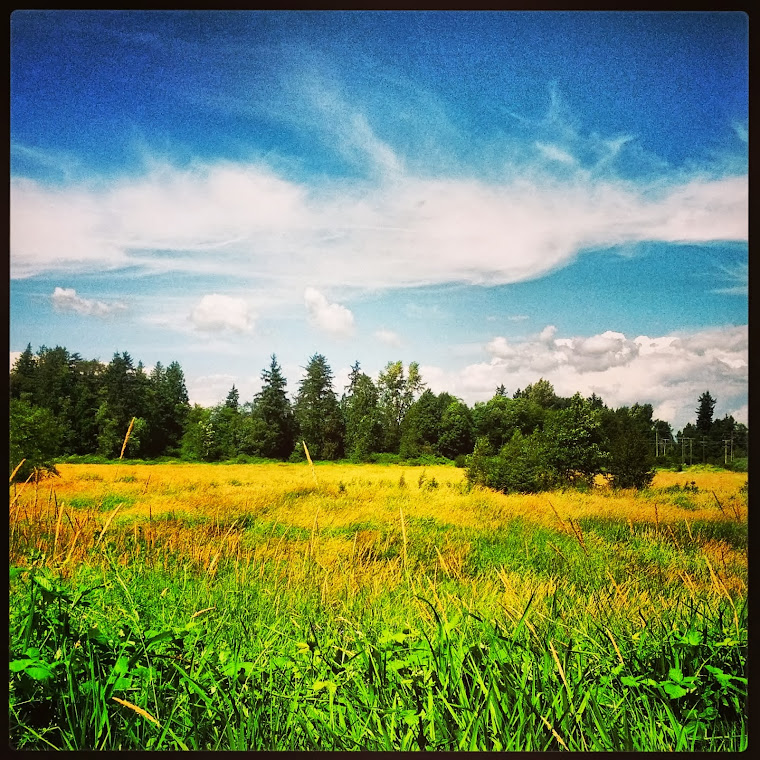Some of my earliest memories of my father are of
him in our local church. I would peek into the side room, down brown carpeted
hallways and pale beige walls, and listen to him teach Hebrew and Greek to the
willing. To him the words of the bible could only be understood if one got to
the original text of the early church. He strived for the truth, whether if it
was in his job with the Police Department or in his current teachings in the
church. I feel like my childhood was governed by such phrases as, “the word is
law,” or, “in all things speak truth.” The bible was our handbook to all things,
be it décor or dialogue. This is the basis of the discourse of my family as a
child; the “Good Book” defined our existence.
If one was to walk into the house of my
childhood you could literally see the writing on the wall. In light brown
picture frames you would read psalms and proverbs; the words to live by were
not just passed orally but visual through the medium of needlework. Your eyes
were pummeled by the dogma of my family from the moment you stuck your head in
the door to the moment you walked out on the, “God bless you,” mat. My father’s jewel was the room at the end of the hallway, the one whose
acquisition had forced me and my brother to sleep on bunk beds, which had been
converted into a library. Floor to ceiling were the books and smells of
biblical knowledge. From apocryphal discussions to the large leather bound
tomes that were never to be touched, the spines of all these books spelled out
his great respect of the written word. At the end of every meal my father would
go and grab one of his books and read some passage he had been pondering while
he locked himself away after work. He
would ask us questions to check our comprehension and my brother, sister and I would
squirm and day-dream of escaping his inquisitions.
My parents had met at a small bible college
in the woods. It was the 70’s and it was more of a Christian hippy retreat then
a bible college. They, and a few small families, had decided that they would
live separate from main stream Christian culture. They built a school, church
and living space on the property they had bought so that their children could
learn in an immersive Christian environment. To go to the school you had to be
a part of the church to assure that the doctrine they so fervently believed in
would be safe in the hand of the future generations. Every breath, every word
and every scratch on paper would be in testament to the glory and power of God.
Amen.
One
verse that dictated much of our discussions was Ephesians 4:29 “Do not let any
unwholesome talk come out of your mouths, but only what is helpful for building
others up according to their needs, that it may benefit those who listen.” To
break this law, to swear (the temptation as a child was so great) or speak
badly of another would entail the punishment of my parents. This created a very
separate world in the dialogue between my parents and the conversations with my
young friends. With my parents a slip of the tongue could have you sent to bed
without dinner. With my friends the curses and bad talk spilled out like a
satisfying deluge. My siblings and I quickly learned the language of Christianity
and the language of the outside world.
As my family aged, views began to develop
and change. My mother watched as the steam of our childhood piety evaporated.
My father and I’s communication turned quickly into debate, which he welcomed
as long as he held the higher ground. He would take out a dusty book and find
the answers I apparently needed. I pulled out contradictions and he reverted to
faith. The word “faith”, to have it and believe wholeheartedly in it, was the
only answer when push came to shove. But one word wasn't good enough for me.
Words had been what he had given me and I used them in all their glory; my
father was faced with the monster he had created. As I began to read books by
the Dalai Lama and talk to people of other backgrounds I lost the language of
my childhood and I formed my own. The arguments, that my father and I had, held
an intimacy reserved for when a religious father knows he’s losing his son to
the outside world. Before the end of high school (one I had switched to after
too many problems in the first one) I had moved out of the house. My language
and beliefs conflicted with my parents and they couldn't understand me anymore.
I no longer went to church and my parent’s greatest fears were embodied: I had
lost my “faith”.
Now, many years after high school and many
of those years spent traveling on my own, I have moved back to my home town. My father has retired from the police force
and is just a pastor now. They have long since separated from the old church
and school, that is still somewhere in the woods, though the picture frames
with the needlework still hang on the walls. He is more relaxed now and we
understand each other better. He apologizes for his strictness and I apologize
for my verbal attacks I had once been so proud of. Why has our dialogue
changed? Maybe it is that I’m not a child anymore, and maybe he isn't the
authoritarian I had once believed he was. I believe the discourse of
our family, like in any family, has evolved. Amen.

No comments:
Post a Comment